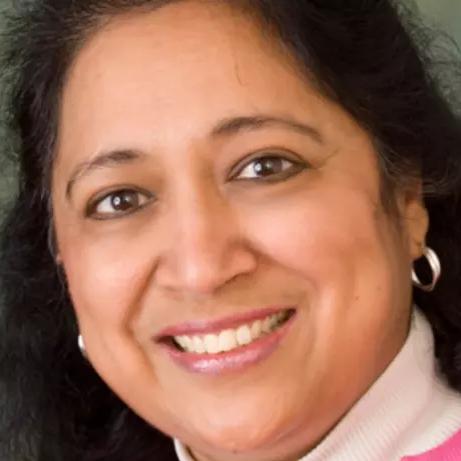
Dr. Anju Malhotra is Principal Adviser, Gender and Development at UNICEF, where she provides leadership on gender equality, including on policy, programs, and research, and serves as the organization’s most senior representative and spokesperson on gender issues. Dr. Malhotra is currently leading the transition from UNICEF’s first Gender Action Plan for 2014-2017 to its successor, “GAP 2.0” for the 2018-2021 Strategic Plan period.
The empowerment of adolescent girls has been a lifelong focus of Dr. Malhotra’s work, and it features as a core priority in the GAP, covering the interrelated issues of girls’ secondary education, health (nutrition, pregnancy care, HIV/AIDS), child marriage, menstrual hygiene management and gender based violence in emergencies. She has been a key architect in shaping the Global Programme to End Child Marriage, a multi-donor, multi-partner effort to prevent child marriage and support married girls in 12 high prevalence and high burden countries. Under her leadership, UNICEF is also launching the Girls Empowerment Initiative to support the most impactful and scalable multi-sectoral, convergent investments in girls across a range of countries.
For GAP 2.0, Dr. Malhotra is also positioning UNICEF to proactively address the gendered dimensions of women’s and men’s roles in care and support for children in both the domestic and professional spheres, especially in the areas of quality maternal health, the education and health workforces, and in water and sanitation initiatives. She is also leading UNICEF’s partnerships and investment in developing a gender capacity and credentialing system that can sustain a pipeline of development professionals with strong, sector specific gender skills in applied programming and measurement.
Prior to joining UNICEF, Dr. Malhotra was Vice President Research, Innovation, and Impact at the International Center for Research on Women (ICRW), where she advanced research, advocacy, and programming on adolescent girls, particularly around the issues of child marriage, girls’ education, sexual and reproductive health, and economic skills and opportunities. She has also contributed significantly to the understanding of how to define and measure women’s empowerment and to quantify gender indicators. Dr. Malhotra developed and led a portfolio of partnerships with the corporate sector on innovation, measurement, and economic empowerment, and established the “Fertility and Empowerment” network with academic institutions.
Previously, Dr. Malhotra was Assistant Professor at the Center on Population, Gender, and Social Inequality at the University of Maryland, and an NIH Post-doctoral fellow at the Carolina Population Center, University of North Carolina. She holds a Ph.D. in Demography and Sociology from the University of Michigan, and a BA from Cornell University.

